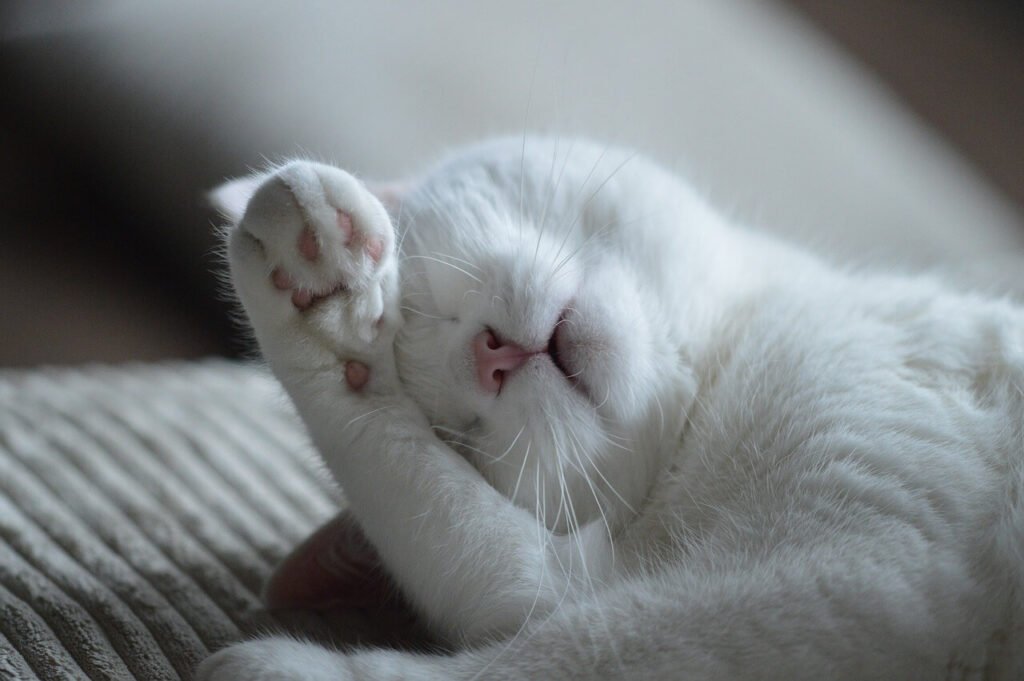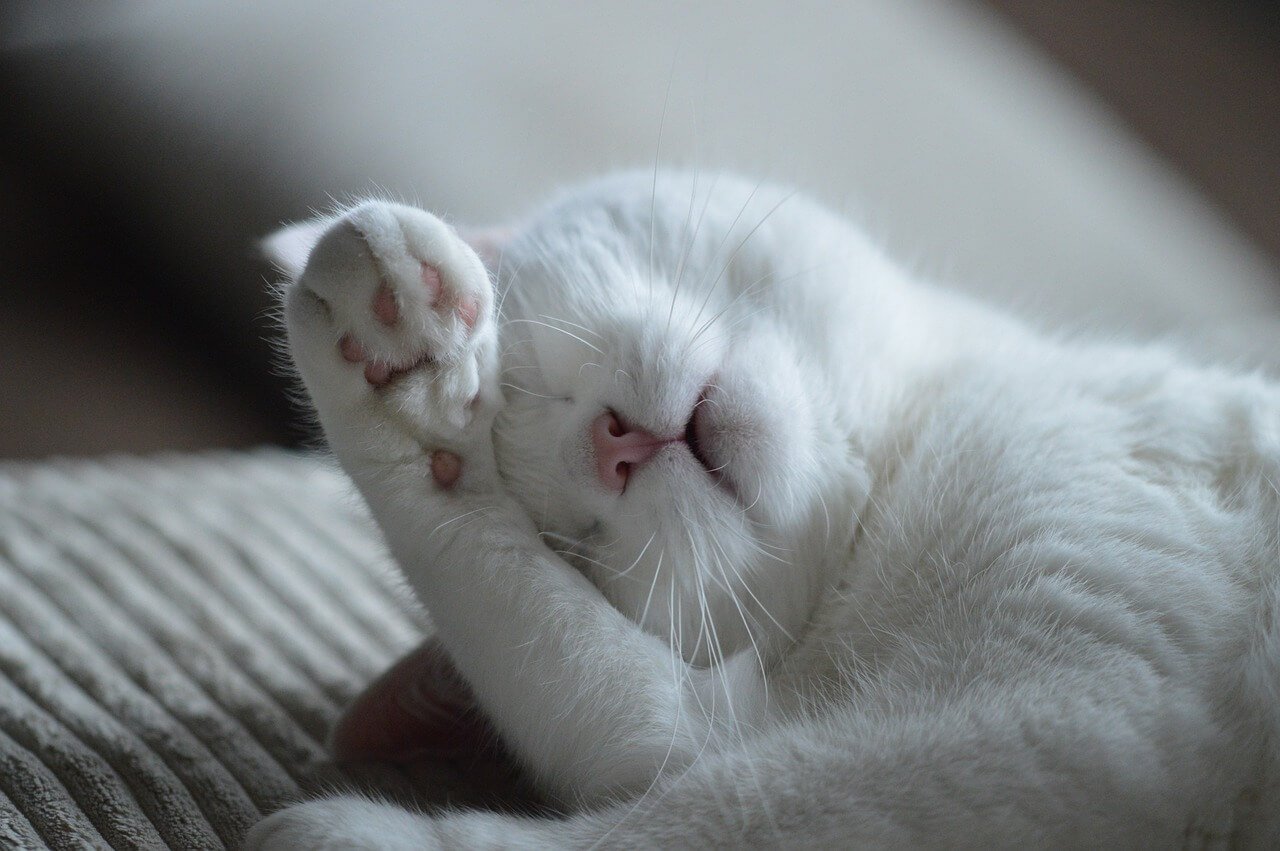Can Cats Eat Corn? A Comprehensive Guide for Cat Owners
Corn is a common ingredient in many human diets, but when it comes to our feline friends, the question arises: Can cats eat corn? As pet owners, we often wonder whether certain foods are safe or beneficial for our cats. While some human foods can be shared with pets, others may pose risks. In this blog post, we’ll explore everything you need to know about feeding corn to your cat, including its nutritional value, potential risks, and how to incorporate it safely into their diet (if at all). Let’s dive in and ensure your furry companion stays happy and healthy!
Is Corn Safe for Cats? Key Considerations
Is Corn Safe for Cats? This is a question that many cat owners ask when considering sharing their meal with their pet. While corn is not toxic to cats, there are several factors to keep in mind before offering it to them. Here’s what you need to know:
Corn is not a natural part of a cat’s diet. Cats are obligate carnivores, meaning their bodies are designed to thrive on animal-based proteins.
Small amounts of plain, cooked corn are generally safe for cats, but moderation is key.
Corn should never replace the primary protein sources in your cat’s diet, such as meat or fish.
Always serve corn without added seasonings, butter, or salt, as these can upset your cat’s stomach.
Some cats may have allergies or sensitivities to corn, so monitor them closely after introducing it.
In conclusion, while corn isn’t inherently harmful, it should only be given occasionally and in small portions. Always prioritize your cat’s main dietary needs over treats like corn.
Nutritional Value of Corn for Cats
What Nutrients Does Corn Provide for Cats? Corn contains some nutrients that might seem appealing, but its overall value for cats is limited. Below is a breakdown of what corn offers and why it’s not a staple food for felines:
Corn contains carbohydrates, which provide energy. However, cats don’t require carbs in large amounts since they rely on fats and proteins for fuel.
It has fiber, which can aid digestion in small amounts. Too much fiber, though, may lead to gastrointestinal issues.
Corn contains vitamins like B vitamins, which support metabolism and nerve function.
Minerals such as magnesium and phosphorus are present in corn, contributing to bone health.
Corn lacks essential amino acids like taurine, which are critical for a cat’s heart and vision health.
While corn does offer some nutrients, its benefits are minimal compared to animal-based proteins. For a balanced diet, focus on high-quality cat food rather than relying on corn as a supplement.
Check this guide 👉 Why Did My Cat Poop on My Bed? Best 7 Expert Behavior Tips!
Check this guide 👉 Why Do Cats Love Sleeping Above Our Heads? Best 7 Tips!
Check this guide 👉 Why Is My Cat Meowing So Loudly? Best 7 Expert Behavior Tips

Nutrient | Role in a Cat’s Diet |
|---|---|
Protein | Essential for muscle growth and overall health |
Taurine | Supports heart function and eye health |
Fats | Provides energy and supports skin/coat health |
Vitamins (B Complex) | Aids metabolism and nervous system function |
Fiber | Helps regulate digestion in small amounts |
Potential Risks of Feeding Corn to Cats
Why Should You Be Cautious About Feeding Corn? While corn isn’t toxic, there are several risks associated with including it in your cat’s diet. Understanding these concerns will help you make informed decisions:
Corn is often used as a filler in low-quality cat foods, which can dilute the nutritional value of the meal.
Overconsumption of corn can lead to obesity due to its high carbohydrate content.
Corn kernels may pose a choking hazard if not properly chewed by your cat.
Processed forms of corn, such as corn syrup or cornmeal, are unhealthy and should be avoided entirely.
Cats with sensitive stomachs may experience diarrhea or vomiting after eating corn.
To protect your cat’s health, always err on the side of caution when introducing new foods like corn. Consult your veterinarian if you’re unsure.
Alternatives to Corn for Your Cat
What Are Better Food Options for Cats? If you’re looking for safer and more nutritious alternatives to corn, consider these options that align better with your cat’s dietary needs:
Cooked chicken or turkey without seasoning makes an excellent protein-rich treat.
Fish like salmon or tuna (in moderation) provides omega-3 fatty acids for skin and coat health.
Plain pumpkin puree can aid digestion and is a great source of fiber.
Small pieces of scrambled eggs (without oil or salt) are easy to digest and packed with protein.
Commercial cat treats formulated specifically for felines ensure proper nutrition.
These alternatives cater to your cat’s natural dietary preferences and offer greater health benefits than corn. Always introduce new foods gradually and observe your cat’s reaction.
Corn in Commercial Cat Food: What You Need to Know
Why Is Corn Commonly Found in Cat Food? Many commercial cat foods include corn as an ingredient, but its presence often raises questions among pet owners. Here’s a closer look at why corn is used and what it means for your cat’s diet:
Corn is inexpensive and acts as a filler, helping manufacturers reduce production costs.
It provides texture and consistency in dry kibble, making it easier to process during manufacturing.
Some brands use corn as a source of energy due to its carbohydrate content.
High-quality cat foods typically limit or exclude corn in favor of more nutrient-dense ingredients.
Cats don’t require carbohydrates like corn in large amounts, so its inclusion may dilute the overall nutritional value of the food.
When choosing cat food, opt for brands that prioritize animal-based proteins over fillers like corn to ensure your cat gets the nutrients they need.
Signs Your Cat May Not Tolerate Corn
How Can You Tell If Corn Doesn’t Agree with Your Cat? While some cats tolerate small amounts of corn without issues, others may exhibit signs of intolerance or sensitivity. Keep an eye out for these symptoms if you’ve recently introduced corn into their diet:
Persistent diarrhea or loose stools could indicate digestive distress caused by corn.
Vomiting after eating may signal that your cat’s stomach is struggling to process the ingredient.
Excessive gas or bloating can occur if your cat has difficulty digesting corn’s fiber content.
Skin irritation or itching might suggest an allergic reaction to corn.
Loss of appetite could mean your cat simply doesn’t enjoy or feel well after consuming corn.
If you notice any of these signs, consider eliminating corn from your cat’s diet and consult your veterinarian for further guidance.
Tips for Introducing New Foods to Your Cat
How Should You Safely Introduce Corn or Other New Foods? When trying out new foods like corn, it’s important to proceed carefully to avoid upsetting your cat’s digestive system. Follow these tips to ensure a smooth transition:
Start with small portions to gauge your cat’s tolerance and monitor for adverse reactions.
Serve the food plain, without added salt, spices, or oils that could harm your cat’s health.
Mix the new food with your cat’s regular meal to help them adjust gradually.
Observe your cat closely for at least 24 hours after introducing the new ingredient.
Avoid forcing your cat to eat something they refuse, as this could cause stress or aversion.
By taking a cautious approach, you can determine whether corn or other foods are suitable for your cat while minimizing potential risks.
Frequently Asked Questions
Is corn toxic to cats?
No, corn is not toxic to cats, but it should be fed sparingly and without additives.
Can kittens eat corn?
Kittens have specific dietary needs, so it’s best to avoid giving them corn altogether.
Why is corn found in some cat foods?
Corn is sometimes used as a filler or binder in commercial cat foods, though higher-quality brands tend to avoid it.
What happens if my cat eats too much corn?
Excessive corn consumption can lead to digestive upset, weight gain, or nutrient imbalances.
How can I tell if my cat is allergic to corn?
Signs of an allergy include itching, vomiting, diarrhea, or skin rashes. Consult your vet if you suspect an allergy.
The Bottom Line: Proceed with Caution
While corn isn’t inherently dangerous for cats, it doesn’t offer significant nutritional benefits either. As obligate carnivores, cats thrive on diets rich in animal-based proteins and fats. Corn should only be offered as an occasional treat and in plain, cooked form. Always prioritize high-quality cat food to meet your pet’s dietary needs and consult your veterinarian before making any major changes to their diet. By staying informed and cautious, you can ensure your feline friend enjoys a long, healthy life filled with joy and vitality.
Do Cats Have Taste Buds? Best 7 Expert Tips! – Discover how cats experience flavors and why their taste is so unique.
Do Dogs Have Taste Buds? Best 7 Expert Tips! – Discover how dogs experience taste, their preferences, and what it means for their diet and health.
Can Cats Taste Sweet? Best 7 Expert Tips! – Discover why cats can’t taste sweetness, how it affects their diet, and tips to keep them healthy and happy.
Can Dogs Taste Sweet? Best 7 Expert Tips! – Discover how dogs perceive sweetness, which foods are safe, and tips to manage their sweet cravings responsibly.





